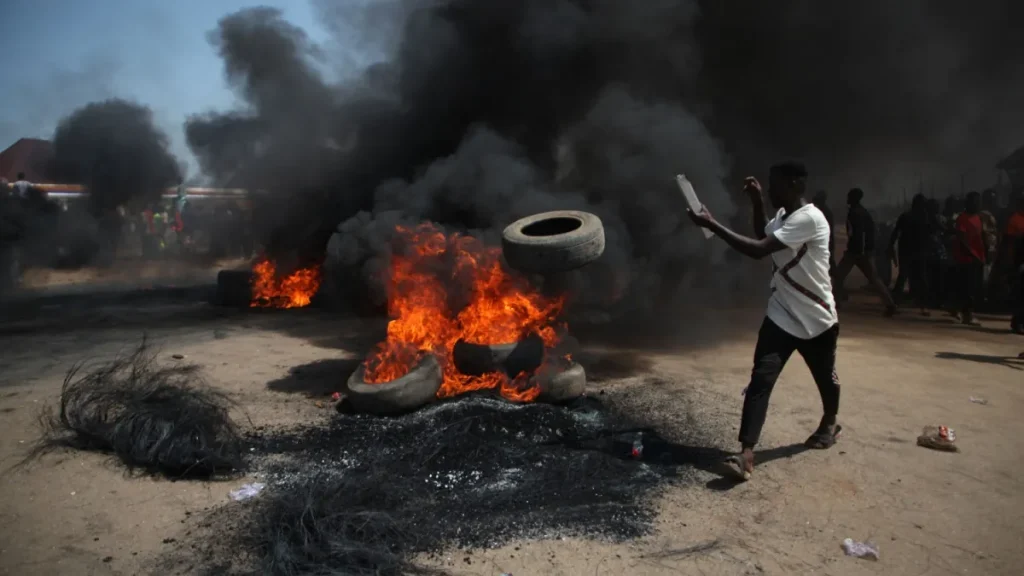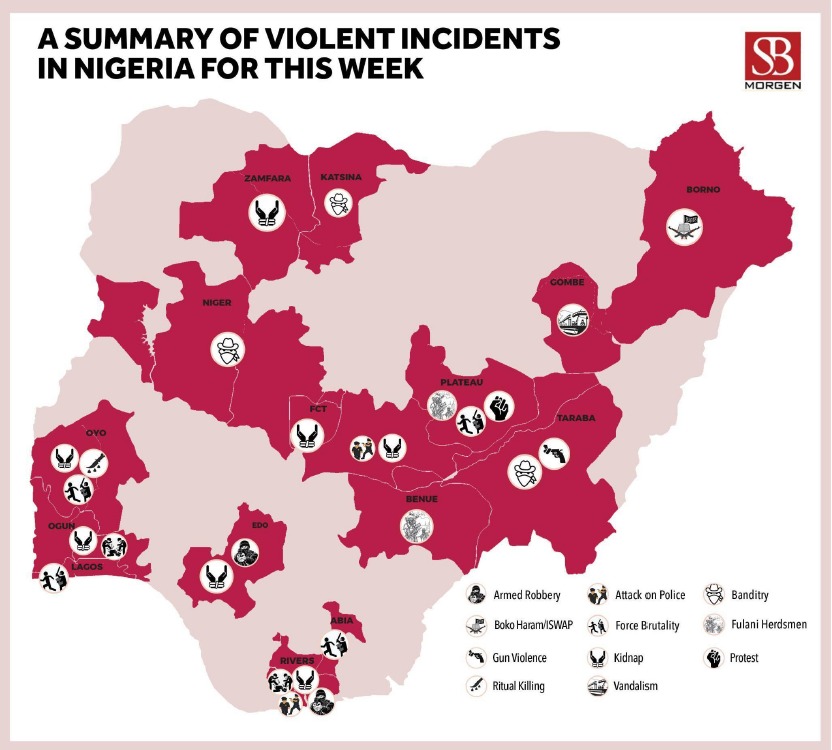Nigeria is currently experiencing a profound security crisis, marked by increasing violence and institutional malaise. This escalation has been meticulously documented in a recent security report by SBM Intelligence, which paints a grim portrait of a nation struggling under the weight of its own governance failures and societal divisions. The multifaceted nature of the crisis spans from abetting terrorism in governance hotbeds to systemic police brutality in urban areas, presenting a complex challenge that threatens both national stability and the safety of its citizens.
Deep-Rooted Issues in Governance and Security
The decision by Sokoto State to dismiss 15 district heads for aiding banditry initially appears as a robust action against corruption. However, this measure barely scratches the surface of the underlying issues. The lack of adequate policing and a robust security infrastructure facilitates such corruption, allowing terrorism and banditry to flourish. This is compounded by an institutional weakness that is symptomatic of a broader national crisis in governance and law enforcement.

In Plateau State, the situation manifests differently but is equally alarming. The military’s shooting of protesting students at Plateau State University exemplifies a heavy-handed approach to crisis management, one that aggravates the public’s distrust in state security forces. This incident is emblematic of the broader indigene versus settler conflicts that have historically plagued the region, now finding new victims among the student population.
The Policing Conundrum: Catalyst for Wider Chaos
Nigeria’s policing issues are central to its ongoing security challenges. Incidents of police acting as rogue agents in Lagos underscore a systemic problem of discipline and accountability within the force. This is exacerbated by the centralisation of police budgets at the federal level, which dilutes the effectiveness of any reforms and allows impunity to persist.
The tragedy in Oyo State, where Mr. Emmanuel Okocha was fatally shot by a police officer over a bribe, is a stark reminder of the everyday dangers posed by this systemic failure. Such incidents of force brutality highlight the urgent need for comprehensive police reform, which must include decentralisation of command and increased local accountability.
Regional Dynamics and International Implications
The security dilemmas in Nigeria are not isolated but reflect a region under siege. Neighbouring Burkina Faso and Niger are experiencing similar upheavals. In Burkina Faso, extrajudicial killings by military forces have stoked fears of widespread military misconduct, while Niger’s pivot away from Western military support towards Russia signifies a significant geopolitical shift that could reshape regional security dynamics.

Strategic Overhaul Required
The path forward for Nigeria involves a multifaceted strategy that addresses both the symptoms and root causes of its security challenges. Key to this strategy will be the reform of the security sector, focusing on accountability, decentralisation, and community engagement. Moreover, tackling the socio-economic disparities that fuel unrest will be crucial for sustainable peace.
Efforts to strengthen governance, improve transparency, and foster inclusive development must be prioritised to address the grievances that fuel conflict. International cooperation will also be vital in addressing the regional dimensions of this crisis, ensuring a coordinated response that respects national sovereignty while promoting regional stability.
As Nigeria confronts these daunting challenges, the choices made by its leaders and citizens in the near future will be crucial in determining the country’s trajectory. The resilience of the Nigerian people, coupled with a committed and transparent leadership, can pave the way towards a more stable and prosperous nation.
The current crisis offers not just a test but an opportunity for Nigeria to reimagine its approach to governance and community relations, building a foundation for lasting peace and security that transcends political and ethnic divides.


